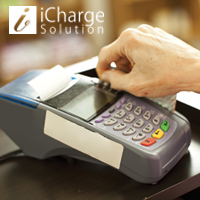About iCharge – iCharge is a Credit Card Application that integrates SAP Business One with Payment Gateways globally. iCharge processes credit card information between sales transaction in SAP Business One and payment processor service that obtains authorization information needed to approve the transaction. For all sales transactions generated in SAP Business One, iCharge authorizes and settles payments in real time and integrates them back into SAP Business One
sales transaction in SAP Business One and payment processor service that obtains authorization information needed to approve the transaction. For all sales transactions generated in SAP Business One, iCharge authorizes and settles payments in real time and integrates them back into SAP Business One
Release Description
This document outlines the enhancements / Issues fixed in iCharge version 10.5.7
iCharge 10.5.7 is only supported on:
- SAP Business One 8.82
- SAP Business One 8.81, PL03 and above
- SAP Business One 8.8
- Microsoft SQL Server 2005
- Microsoft SQL Server 2008
Enhancements
- Unlinked Refunds: With this release, unlinked refunds are allowed. User can create independent A/R Credit Notes and perform refunds using Banking à Incoming Payments.
- CVV No.: With this release, CVV number field has been made available for all the payment gateways. The entered CVV number can be transmitted to payment gateway for Credit Card authorization. However, iCharge never stores the CVV number in database.
- Direct Sale: With this release, the partially settled card can automatically be used for settling the unsettled partial document amount through direct sale.
For more details on iCharge Contact us or write to us on [email protected]





